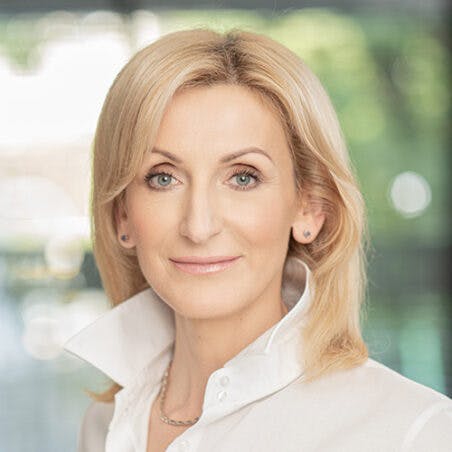Dr. Tchiki Davis is a writer, author of the book "Outsmart Your Smartphone" and an expert in happiness, well-being and technology. She's also the author of the blog "Click Here for Happiness” for Psychology Today, and co-creator of an online program that has helped more than a million people worldwide to find balance and joy.
Dr. Davis, thank you very much for joining us today.
Dr. Davis: Thanks for having me.
What a wonderful life mission to help people to find their happiness and well-being. Where and how did your journey in this topic begin?
Dr. Davis: It began really early. I was always interested in mental health and well-being, relationships and the community, but I didn't realize it was going to turn into a career in well-being. I started organizing social events for me and my friends as a teenager and later, worked with at-risk youth and eventually went to get my PhD studying emotional well-being at UC Berkeley. It’s a sort of a zigzaggy path. I just kept getting more and more interested in this topic and how we can figure out how to boost happiness and well-being.
This is so timely in the context of healthy longevity. One of our experts, Dr. Mario Martinez, has been conducting a study on centenarians around the world, which has revealed that some of the main drivers for healthy longevity are a healthy mindset, healthy social connection and purpose in life. In our Western society in particular, we seem to have lost the natural ability to find happiness and well-being. Why do you think this is and what can we do about it?
Dr. Davis: I think there are a lot of different things happening. I focus particularly in my book "Outsmart your smartphone" on the effects that technology is having on our happiness and well-being. Technologies are distracting us from spending more time with other people and ourselves and thinking about our purpose. We are getting stuck in these habits that are not good for our happiness and well-being. So lately, that's the topic that I've been focusing on a great deal because it is definitely making it harder for us to be well and affects our longevity.
Technologies are distracting us from spending more time with other people and ourselves and thinking about our purpose.
So how can we outsmart our smartphone?
Dr. Davis: My training is in positive psychology and I was working in building happiness and mindfulness apps, which I think can be really useful. But the more I did this, the more I started to realize that it's really hard for people to increase happiness now in the digital age. I started doing research and put together this book on all the ways we can interact with technology that don't hurt our well-being. For example, we know that comparing ourselves to other people on our Facebook wall or our Instagram feed, can make us feel bad about ourselves. So how do we continue to engage with our technologies in ways that don't make us feel so bad? For example, maybe we can reach out and have conversations with people we haven't connected with in a long time, or share something that other people can benefit from on their board, thereby improving our relationships with those people. The idea is technology in itself is not evil, it's just the way that we're using it, which can have a negative effect on our health and well-being. I suggest we outsmart our smartphones not by throwing them into the ocean and getting rid of technology altogether, but by using technology intentionally and in ways that we know can promote well-being.
Technology in itself is not evil, it's just the way that we're using it, which can have a negative effect on our health and well-being.
Thank you. This is so important in the context of health. There are more and more apps that are potentially very helpful in terms of tracking our health records and also helping us to monitor our stress level or our sleep patterns. So there are a lot of ways we could use technology to our advantage.
Dr. Davis: That's mostly what I do in my day job is to figure out how can we translate the science of happiness and well-being into activities or articles that we can get to a greater number of people online. I know there's a lot of junk online, but we're trying to put more good stuff there so that people can learn the skills they need to boost their happiness, which is pretty cool.
One of the other areas that you seem to put a lot of focus on is stress. We know that oxidative stress is one of the main triggers for inflammation and as a result, many chronic diseases.
On the other hand, a certain amount of stress is good for us. … even necessary for our immune system to function properly. How can we find the right balance? What are your main findings in stress resilience?
Dr. Davis: Since my training is around emotional well-being and positive psychology, I always used to approach stress from the point of view that it's all about mindset. We can do a lot of things to decrease our stress through things like mindfulness or being in nature. There's even a science behind that. One really interesting finding is for people who dig their hands into the soil, for example, in gardening, there's a microbe or something that can potentially reduce depression. There's a ton of different ways to manage stress and depression and the negative emotions that go along with that. I created this program specifically when I found that a lot of these strategies weren't working for me after a really stressful time in my life. It got to the point where sitting down and meditating wasn't enough. I even cut back my work hours and worked on work-life balance, and still, it wasn't enough.
We can do a lot of things to decrease our stress through things like mindfulness or being in nature.
Dr. Davis: I started researching more into health, which may be more closely to what you talk about at the Longevity Institute, and realized that there are all these different ways in which we can reduce the number of stress hormones in our body. Our bodies get backed up with lots of stress and hormones that get trapped and our cortisol gets messed up. I did all this research and tried to figure out what things we need to be eating and what activities we need to be doing not to experience chronic stress for a long time and have a fight feeling that probably leads to disease. Some of the things I found are that there are herbs that can help your liver to process toxins more quickly, which reduces stress on your body. I learned about something called the COMP gene (Cartilage oligomeric matrix protein) and that people who have a particular version of this gene are less able to decrease stress and maybe need to eat different foods not to burden that gene. This was a very different area of research for me, but I found it fascinating since stress is something that's so complicated and hard to deal with. And my own experiences made that very apparent to me.
Your Berkeley Happiness Program is focusing on 10 main skills required to find happiness. Could you please share a few of the most important ones? How can we find happiness?
Dr. Davis: These are my keystone things that I base everything else I do on. Positivity is one of my absolute favorite tools for happiness and well-being. We know that the act of practicing gratitude is one that people tend to find a fairly easy skill to build and is a very effective skill for boosting well-being. Then there are some other things that are a bit more challenging within positivity, like practicing self-compassion. That may be a little bit harder for some of us but also incredibly important. Earlier on in my work, I found that people's ratings of their own self-worth was one of the factors that was most related to their happiness. So we really need to work on being kinder to ourselves so that we can improve our self-worth and then ultimately, our happiness. Another one of my favorite ones is resilience. I think that's especially important now in our fast-paced world with automation and technology. If we're not resilient, it can be really painful to live in this world. There are also tools like learning how to see the silver linings in negative situations. That's a cognitive skill that takes practice, but if you practice it often enough, it becomes easier and then suddenly, when something bad happens, it still feels bad but you can see a potential benefit of the situation, what you might learn or find a possible positive outcome, and then it makes those situations less challenging.
The act of practicing gratitude is one that people tend to find a fairly easy skill to build and is a very effective skill for boosting well-being.
This is so inspiring. Thank you. When we look at the area of longevity, there is a great deal of scientific evidence that our mindset is one of the main drivers of our health. What do you think is the best way to move from ill-being to well-being?
Dr. Davis: In happiness research, there is very much evidence showing that mindset is key but what I found in my work is that it's necessary but not sufficient. So for example, if you don't have the mindset that you can improve your health, your longevity, and your happiness, then you won't put in the required effort to do so. But if you do believe so, then you have the potential to improve your health and well-being but you still have to engage in a set of positive health behaviors to achieve that goal. Sometimes people think, "if you just have the right mindset, then the magic will come". But really, it's just opening that door that enables you to embrace the lifestyle factors that lead to positive well-being.
You have carried out years of happiness research. Now having all of those tools, could you share what you do personally to find balance and joy in your everyday life?
Dr. Davis: I am very much a big fan of practicing what I preach. So I try to do everything I talk about, obviously, not all at the same time. I've tried out all the compassion activities and try to practice kindness, look for my purpose and practice empathy and positivity. Lately, I've been especially interested in just spending more time outside. I think we know that there's lots of research that just walking through a tree-filled area can be good for well-being. I'm also experimenting with a slower paced, less cognitive way of boosting well-being. But I like trying them all. They're all super fun.
Dr. Davis, thank you very much for this interview. This was very inspiring. I hope we can continue in the future.
Dr. Davis: Thank you so much. It was great chatting with you.

